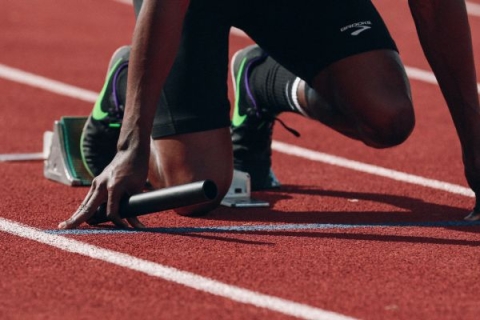

Sporting events are often accompanied by allegations of bribery and corruption but with the help and advice of key people involved, the risks can be mitigated.
13 August 2021
3 min read
Bribery and corruption at huge sporting events – such as the Olympics, World Cups and UEFA club competition finals – can and must be prevented, a new paper from the University of Portsmouth argues.
Sporting events are often accompanied by allegations of bribery and corruption, including abuse of power, embezzlement, fraud and vote-rigging, but with the help and advice of key people involved, the risks can be mitigated.
The paper was published in Sport in Society journal.
Christina Philippou, of Portsmouth Business School, explored the perspectives of anti-corruption specialists, sport governance officials, athletes, coaches, club officials and journalists – all stakeholders in ‘sport mega-events’.
She said: “It is not surprising that big sporting events are linked to scandals, nor that concerns around corruption are expected to continue.
“It is vital for the integrity of sport to ensure that the events of the next decade are less tarred by the brush of corruption than some of their predecessors.
“There is a wealth of research on previous corruption scandals, but limited studies on the prevention of bribery and corruption. This paper is a starting point to achieve the necessary reforms required at most levels of sport organisation hierarchy to ensure that corruption isn’t repeated time and again.”
Research on anti-corruption is important for understanding how improvements can be made and I hope my work will contribute to governance reforms, which will prevent large national and international sport governing bodies being engulfed in future corruption scandals.
Christina Philippou, Portsmouth Business School
Mrs Philippou conducted interviews with 39 participants from six continents between 2018 and 2020.
Some common concerns and recommendations emerged, including the need for transparency, accountability and compliance.
The anti-bribery experts suggested sport governance officials should have similar internal controls as those used for politicians. Others discussed due diligence and a focus on transparency from the start, in line with common industry anti-bribery controls.
Enforcement was also seen as an important control tool, where ‘there need to be very steep consequences when anything untoward is found out’.
Interviewees also shared concerns around construction and other contracts. One participant said ‘of course there’s enormous amounts of construction happening around these events, and that’s an area that’s notorious for more corruption as well’.
Another important theme that emerged was the need for legacy and sustainability. One participant stated ‘It’s not that the legacy should be the stadium, the legacy should be fundamental building blocks for your society there. Big nice stadium, lovely thing to look at, but absolutely useless if your kids can’t go to school’.
It is vital for the integrity of sport to ensure that the events of the next decade are less tarred by the brush of corruption than some of their predecessors.
Christina Philippou, Portsmouth Business School
One participant shared concerns about the Rio Olympics because of the amount of money being spent on a three-week event when there are people living in poverty-stricken favelas (slums). ‘I felt morally conflicted, because you’re looking at what has been built… and you have all these VIPs coming in being chauffeured around the city and staying in amazing hotels, and you have people who are destitute’.
Proposed solutions included:
• Registers of interests/gifts/expenses
• Independent third party oversight
• Transparent bidding
• Conflicts of interest registers
• Independent NEDs
• External regulator
• Transparency in procurement
• Demonstrable compliance
• Monitoring
Mrs Philippou said: “Research on anti-corruption is important for understanding how improvements can be made and I hope my work will contribute to governance reforms, which will prevent large national and international sport governing bodies being engulfed in future corruption scandals.”
